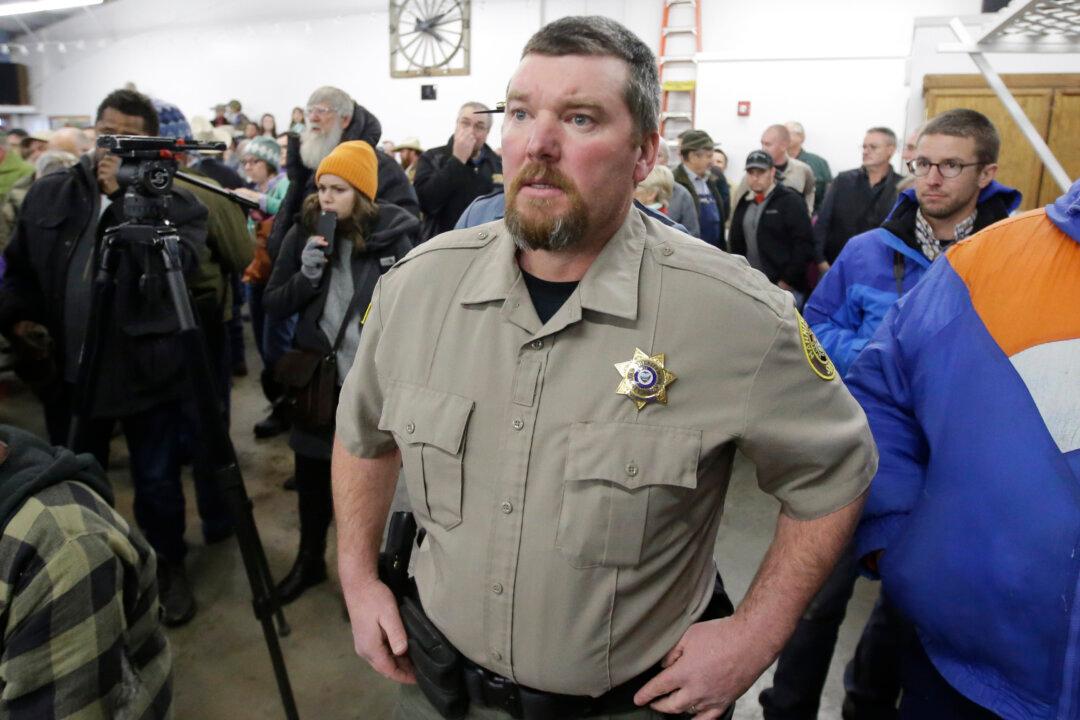BURNS, Ore.—Cheers erupted at a packed community meeting in rural Oregon when a sheriff said it was time for a small, armed group occupying a national wildlife refuge to “pick up and go home”.
The group objecting to federal land policy seized buildings at the Malheur National Wildlife Refuge on Saturday. Authorities have not yet moved to remove the group of roughly two dozen people, some from as far away as Arizona and Michigan. The group also objects to a lengthy prison sentence for two local ranchers convicted of arson.
“I’m here today to ask those folks to go home and let us get back to our lives,” Harney County Sheriff David Ward said Wednesday evening.
I'm here today to ask those folks to go home and let us get back to our lives.
, Harney County sheriff





